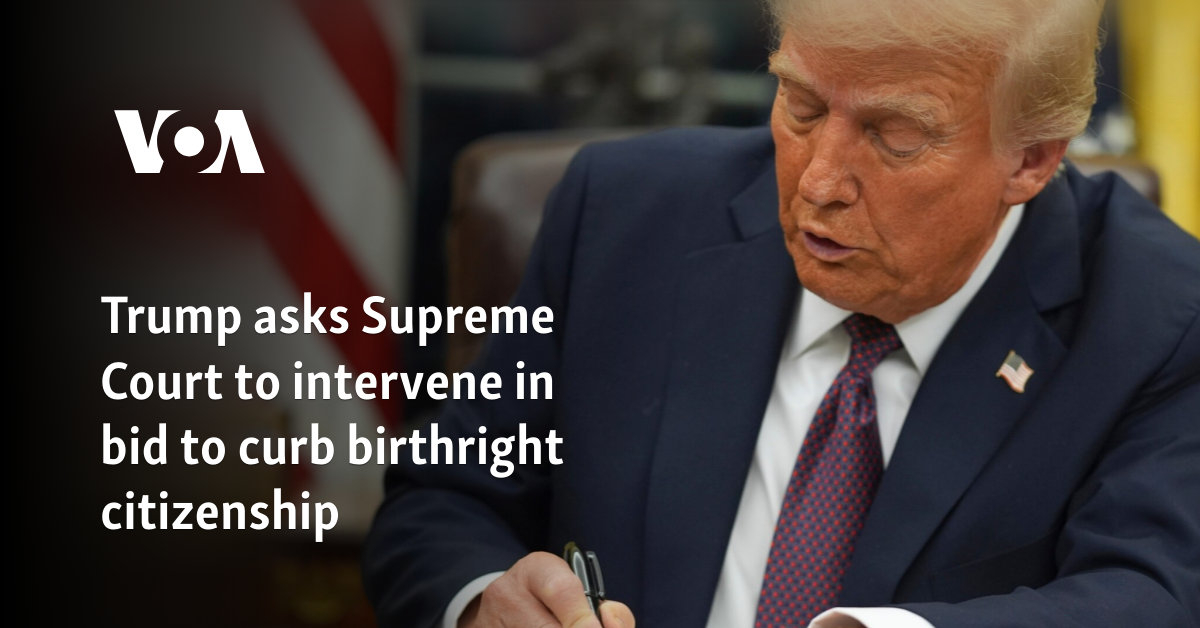Trump's Changing Policies Towards Electric Vehicles

Introduction
President Trump's changing policies towards electric vehicles (EVs) have caused a stir in the U.S. automotive industry. As a result, major automakers are reevaluating their product lineups and calculating the potential impact on their bottom line. With the push for more domestic production and the potential removal of EV tax credits, the industry is facing uncertainty and potential challenges in the near future.
Challenges and Opportunities
The EV market has been steadily growing in recent years, with many automakers investing heavily in the development of new models and technology. However, with the recent changes in policies, some companies are facing challenges in meeting their ambitious EV goals. On the other hand, some are seeing this as an opportunity to pivot towards more traditional vehicles and diversify their product offerings. For example, Ford has decided to stop producing sedans and focus on SUVs and trucks, while General Motors is expanding its EV lineup with the introduction of the fully-electric Hummer.
Impact on Consumers
The changing EV landscape also has a direct impact on consumers. With the potential removal of EV tax credits, the cost of purchasing an EV may increase, making it less affordable for the average consumer. This could also lead to a decrease in consumer demand for EVs, potentially affecting the overall growth of the industry. However, with the increased focus on domestic production, consumers
About the People Mentioned
Donald Trump
Donald John Trump, born June 14, 1946, in Queens, New York, is an American businessman, media personality, and politician. He graduated from the University of Pennsylvania’s Wharton School in 1968 with a degree in economics. In 1971, he took over his family’s real estate business, renaming it the Trump Organization, through which he expanded into building and managing skyscrapers, hotels, casinos, and golf courses. Trump gained widespread fame as the host of the reality TV show *The Apprentice* from 2004 to 2015, which helped establish his public persona as a successful entrepreneur. Trump entered politics as a Republican and was elected the 45th president of the United States, serving from 2017 to 2021. His presidency was marked by significant policy actions including tax cuts, deregulation, the appointment of three Supreme Court justices, renegotiation of trade agreements (notably replacing NAFTA with the USMCA), and a focus on immigration control including border wall expansion. He withdrew the U.S. from international agreements such as the Paris Climate Accord and the Iran nuclear deal, and engaged in a trade war with China. His administration’s response to the COVID-19 pandemic was criticized for downplaying the virus’s severity. Trump was impeached twice by the House of Representatives—first in 2019 for abuse of power and obstruction, and again in 2021 for incitement of insurrection—but was acquitted by the Senate both times. After losing the 2020 election to Joe Biden, Trump challenged the results, culminating in the January 6, 2021, Capitol riot. He remains a central figure in American politics, having won the 2024 presidential election and returned as the 47th president in 2025, continuing to promote policies aimed at economic growth, border security, and military strength[1][2][3][4].
About the Organizations Mentioned
Ford
## Overview Ford Motor Company is a global automotive industry leader, recognized as the second-largest automaker in the United States (after General Motors) and the sixth-largest worldwide[1]. Headquartered in Dearborn, Michigan, Ford designs, manufactures, markets, and services a full line of vehicles—including cars, trucks, SUVs, electrified vehicles, and luxury vehicles under the Lincoln brand[1]. The company operates in every major automotive market and is renowned for its innovation, manufacturing scale, and iconic brands. ## History and Key Achievements Founded in 1903 by Henry Ford, the company revolutionized the automotive industry with the introduction of the Model T in 1908, making cars affordable for the masses through assembly line production. This innovation not only transformed Ford but also set a new standard for industrial manufacturing worldwide. Over more than a century, Ford has introduced several landmark vehicles, such as the F-Series trucks—America’s best-selling vehicle for over four decades—and the Mustang, an enduring symbol of American automotive culture[1]. ## Current Status As of 2025, Ford continues to demonstrate strong financial performance, with revenues of $185 billion and net profits of $5.9 billion in 2024[1]. The company is led by CEO Jim Farley, who has prioritized both electrification and quality improvements since taking the helm in 2020[1]. Ford’s vehicle lineup remains robust, with the F-Series leading U.S. truck sales and electrified vehicles accounting for nearly 16% of its U.S. sales in the third quarter of 2025[3]. The company is aggressively investing in electric vehicles (EVs), committing $5 billion to develop a family of affordable, adaptable EVs and building a new battery plant in Michigan[2]. ## Notable Aspects and Challenges Ford is currently at a pivotal moment in its history. It is reinventing its manufacturing system to produce next-generation EVs, aiming to secure American jobs
General Motors
General Motors (GM) is a leading American multinational corporation that has been a driving force in the automotive industry for over a century. Founded in 1908 by William C. Durant, GM began as a holding company for Buick and quickly expanded to include other prominent brands like Cadillac, Oldsmobile, and Chevrolet[1][3]. Durant's vision was instrumental in transforming GM into a global powerhouse, though he faced challenges, including being forced out in 1920 and later returning to co-found Chevrolet in 1911[2][3]. Under the leadership of Alfred P. Sloan, GM reorganized into a decentralized management structure, pioneering annual style changes and consumer financing innovations[1]. The company's impact on the automotive sector has been profound, introducing the electric starter and being a model for large-scale industrial enterprises[1][3]. GM's legacy includes a vast array of brands, though some like Oldsmobile and Pontiac have been discontinued[4]. In recent decades, GM faced significant challenges, including bankruptcy in 2009, but it has since recovered and is now focused on electric and autonomous vehicles[5]. Under CEO Mary Barra, GM has committed to a future of sustainable transportation, aiming for zero crashes, zero emissions, and zero congestion[6]. Today, GM operates globally, manufacturing vehicles in 35 countries and employing thousands worldwide[4]. Notable aspects of GM include its commitment to innovation and its role in shaping American industrial history. The company continues to evolve, investing heavily in electric vehicles and self-driving technology. As a leader in the automotive industry, GM remains a significant player in both business and technology, shaping the future of transportation with its pioneering spirit and technological advancements.















